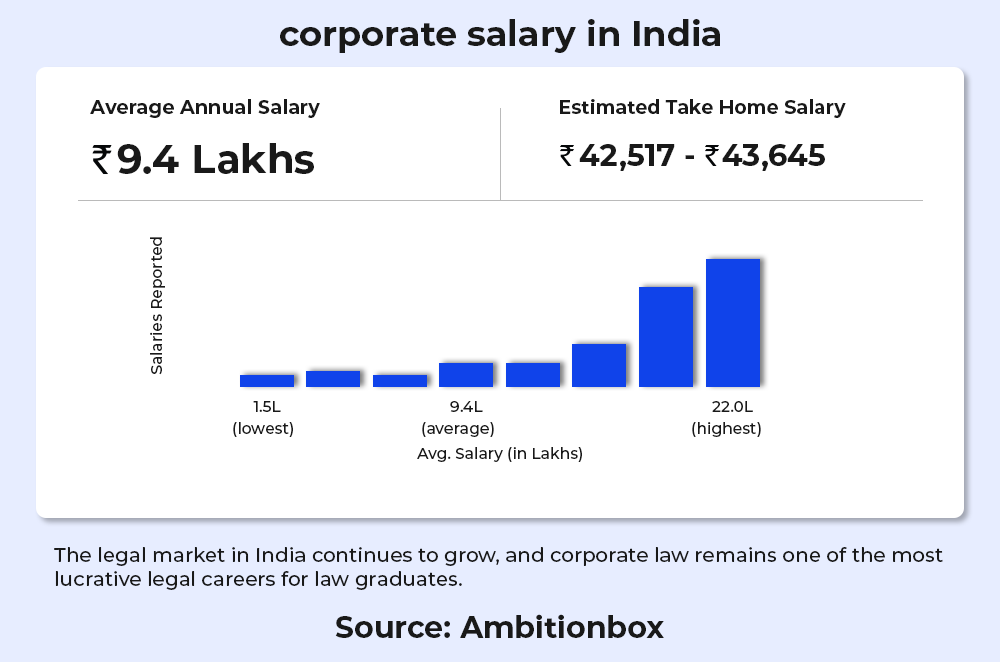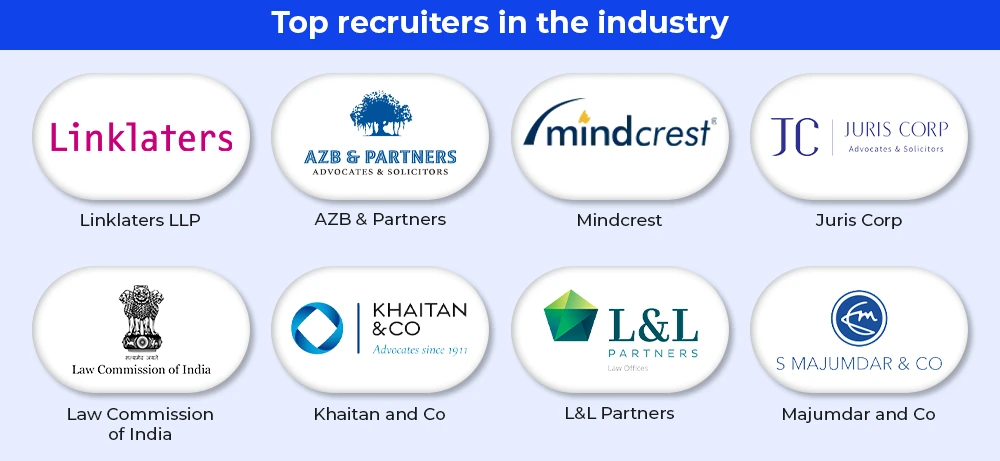Expert Interviews
- University Reviews
- Career Guide
 Video Counseling
Video CounselingImportant Facts
- Ask any Question - CV Forum

LLB vs LLM: Key Differences, Eligibility & Career Scope
Sonika Jan 22, 2026 1K Reads

An undergraduate law program, or LLB, gives students a basic knowledge of the laws, principles, and practices. In many countries, such as India, it's far the bare minimum of qualifications that is needed to practice in the court of law. Fundamental topics covered in civil law, constitutional law, criminal law, and legal procedures. After completing an LLM program, students may get various opportunities to choose a position in the government or corporate sectors. Before enrolling in an LLB program, one must need to attempt an entrance exam and qualify it as well which is required by the university at the time of admission.
What is LLM?
LLM is a postgraduate degree pursued after choosing one specialization in which students wish to gain additional knowledge on certain subjects or any particular domain. It enables attorneys to focus on the areas of the law, including intellectual property, business law, international law, or human rights. LLM improves legal expertise for academic, consulting, or high-level professional employment and is frequently research-focused. Various universities offer LLM programs after graduation with a scorecard of the entrance exam asked in the eligibility criteria for the respective university that the students wish to be admitted to.
Difference between LLB and LLM
Well, the first difference is that one is an undergraduate program and the other is a postgraduate program. Let's learn more about both programs with the help of the table below:
|
Criteria |
LLB |
LLM |
|
Definition |
An undergraduate degree for law students that allows students to gain fundamental knowledge regarding legal studies, practices, and principles. |
After completion of the LLB program (3 or 5 Years), students choose any particular specialization under which they wish to advance their studies in the law field. |
|
Full form |
Bachelor of Legislative Law |
Master of Laws |
|
Academic level |
Undergraduate Program |
Post-graduate program |
|
Eligibility criteria |
|
|
|
Entrance exam |
|
|
|
Duration of the program |
The duration of an LLB program is generally 3 years |
The duration of an LLM program is generally 2 years |
|
Options Available |
|
|
|
List of top Universities |
|
|
|
Who should pursue |
Students who are law enthusiasts and interested in understanding the legal field |
LLB degree holders, if they wish to further their knowledge in a specific subject or domain |
|
Bar council registration |
Eligible after completion of LLB program |
Already eligible (LLM not required for practice) as they have completed the LLB program |
|
Purpose |
To get fundamental knowledge about legal studies |
To get specialized learning on any particular subject |
|
Career options |
|
|
|
Specializations offered |
|
|
|
Syllabus (Core Subjects) |
|
|
As we know, lawyer get more value after completion of their Master’s program (an LLM), Let’s check out their salary packages for a few posts. Salary packages after completing an LLM program:
|
Sr. No. |
Position |
Salary |
|
3. |
Judiciary |
INR 1 LPA to INR 25 LPA |
|
6. |
Corporate counsellor |
INR 9 LPA - INR 5 LPA |
|
1. |
Lawyer |
INR 1 LPA -INR 10 LPA |
|
4. |
Junior advocate |
INR 10,000 per month to INR 25,000 per month |
|
5. |
Legal advisor |
1 LPA to INR 14 LPA |
|
10. |
Patent analyst |
INR 4 LPA to INR 6 LPA |
|
2. |
Journalist |
INR 1-8.2 LPA |
|
7. |
Legal Analyst |
INR 2.1 LPA to INR 10.6 LPA |
|
9. |
Legal writer |
INR 1 LPA to INR 6.9 LPA |
|
8. |
Legal researcher |
INR 21,000 - INR 50,000 per month |

Universities offering LLM programs for working professionals?
Working professionals who would love to get a better understanding of any particular subject in the legal field should pursue this program. This program is developed in a manner that people who wish to work and want to study side by side to get into the depth of the subject should pursue this course. Let’s know about the universities that are offering this program.
|
Universities offering LLM programs for working professionals |
|
|
Kurukshetra Univerity |
Jamia Millia Islamia |
|
KUVEMPU University |
Jindal Global Law School |
|
Karnataka State Open University |
Banaras Hindu University |
Universities offering 1-year LLM programs
There are a few universities that offer 1-year LLM programs to the students. Let’s learn about those universities and their offered specializations.
|
Top colleges offering a 1-Year LLM program |
|
|
Colleges |
Specializations |
|
Jindal Global Law School (Blended Learning Program) |
|
|
National Law University, Delhi |
|
|
Lovely Professional University |
|
|
Symbiosis Law School International, Pune |
|
|
NLU, Kolkata |
|
|
UPES |
|
LLM 1-year program fees for various institutions
|
LLM 1-year program fees for various institutions |
|
|
Institutions |
Total Fees |
|
Jindal Global Law School (Blended Learning Program) |
INR 3,50,000 |
|
National Law University, Delhi |
INR 1,25,000 |
|
Lovely Professional University |
INR 1,60,000 |
|
Symbiosis Law School International, Pune |
INR 2,50,000 |
|
NLU, Kolkata |
INR 1,39,000 |
|
UPES |
INR 2,79,000 |
Jindal Global Law School (Blended Learning Program)
Jindal Global Law School is one of those universities that offers 1-Year LLM program. Additionally, they offer this program in a blended learning mode. This implies that the learner has access to both hyrid and offline learning environments. With the use of videos, case studies, assignments, live sessions, and projects, students may learn from top academics and professionals in the field. Let's learn about the Jindal Global Law School’s eligibility criteria, fee structure, and a few more things.
Fee structure:
- Course fee: INR 3,50,000
Eligibility criteria:
- Applicants must have earned a Bachelor of Laws degree, which must be LLB, within three and a half years, or be in their last year.
- To be excused from the admission exam (JSAT), candidates must have passed entrance tests such as the LSAT, CLAT PG, or DU LLM exam within the last 12 months at the time of application.
- Candidates will also be excused from the admission exam (JSAT) if they hold a valid LSAT international score within five years of the time of application.
Specialization offered:
- Corporate & Financial Law
- AI and Emerging Technologies
- Intellectual Property & Technology Law
- Dispute Resolution
- Taxation Law, Policy and Regulation
Syllabus offered by the Institution
Below is the syllabus offered by the Jindal Global Law School for each of the specializations offered by the institution:
|
Specializations and syllabus at Jindal Global Law School (Blended Learning Program) |
|
|
Specializations |
Syllabus/Subjects |
|
Corporate & Financial Law |
|
|
AI and Emerging Technologies |
|
|
Intellectual Property & Technology Law |
|
|
Dispute Resolution |
|
|
Taxation Law, Policy and Regulation |
|

Conclusion
In this blog, students get to learn about the differences between the two programs i.e., LLB and LLM. however, it is quite clear that one is an undergraduate program and the other one is a master’s program. But still, some students are new to these terms and programs. This blog helped them to know the difference between the two. Additionally, students get to know about the specializations and the syllabus that they may get to learn under these programs.
FAQs (Frequently Asked Questions)
If you meet the requirements, you may apply for any government job or post with ease. Any government agency, including the Railway Ministry, the Law and Justice & Defence Ministry, the Short Service Commission, the Legal Consultant, the Assistant Professor, and others, is open to applications.
After completion of 10+2, this program needs 5 years to complete, and if graduation is completed, then it is a 3-year course.
Minimum marks must be 55%
Entrance exam may or may not required
Various entrance exams are there. Many universities conduct their own entrance exams to find eligible students. A few of the entrance exams are:
- CLAT PG (Common Law Admission Test for Postgraduate)
- CUET PG (Common University Entrance Test for Postgraduate)
- LSAT India (Law School Admission Test)
- AILET PG (All India Law Entrance Test)
- AMUEE (Aligarh Muslim University Entrance Exam)
AIBE (All India Bar Examination)
- List some universities that offer LLM programs that any student can be admitted to.
Starting first nine universities are top-running universities in the NIRF ranking list 2026. Here is the list of LLM programs offering universities:
- National Law School of India University, Bangalore
- National Law University, Delhi
- Nalsar University of Law
- NLU Kolkata - The West Bengal National University of Judicial Sciences
- Symbiosis Law School, Pune
- Faculty of Law, Jamia Millia Islamia
- IIT Kharagpur - Indian Institute of Technology
- Gujarat National Law University, Gandhinagar
- Babasaheb Bhimrao Ambedkar University (BBAU), Lucknow
- Jindal Global Law School (Blended Learning Program)
- National Law University, Delhi
- Lovely Professional University
- UPES
LLB can be pursued in general and can be pursued with some specializations as well. However, there are common specializations that can be chosen for any of these programs. These specializations may include Criminal Law, Intellectual property law, Family law, Corporate law, environmental law, Taxation law, Labor law, Media Law, Civil Law, Corporate and governance law, Human rights law, Energy Law, Property law, and more. There may be a combination of two of these specializations as well.
Must have completed LLB or equivalent law degree.
- Minimum marks - 55%
- An entranceexam may or may not be required
Well, the answer to this question lies in the years of experience a lawyer has in his field. Starting from the entry level, they usually earn INR 1 LPA to 10 LPA which gradually increases with experience.
Yes, a career in Law is a good option to choose. In India, there is a great scope and various opportunities may fall into your lap from which you can choose.

By Sonika
3 Years of experience/ academic writer/ freelance writer
An academic writing expert with an experience of 4 years.
Every query is essential.
Our team of experts, or experienced individuals, will answer it within 24 hours.
Recommended for you
Tired of dealing with call centers!
Get a professional advisor for Career!
LIFETIME FREE
Rs.1499(Exclusive offer for today)

Pooja
MBA 7 yrs exp

Sarthak
M.Com 4 yrs exp

Kapil Gupta
MCA 5 yrs exp
or



Career Finder
(Career Suitability Test)
Explore and Find out your Most Suitable Career Path. Get Started with our Career Finder Tool Now!
ROI Calculator
Find out the expected salary, costs, and ROI of your chosen online university with our free calculator.
